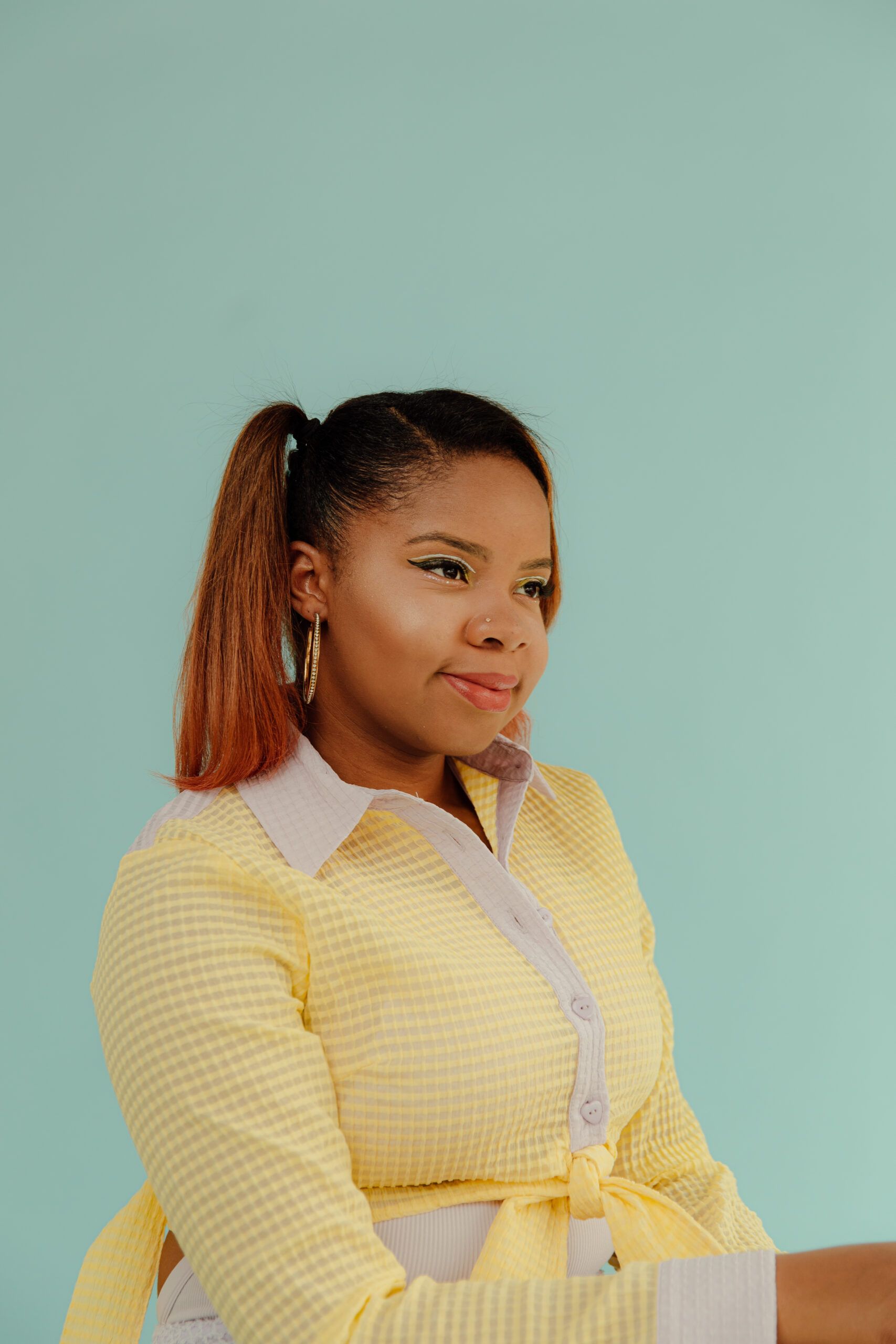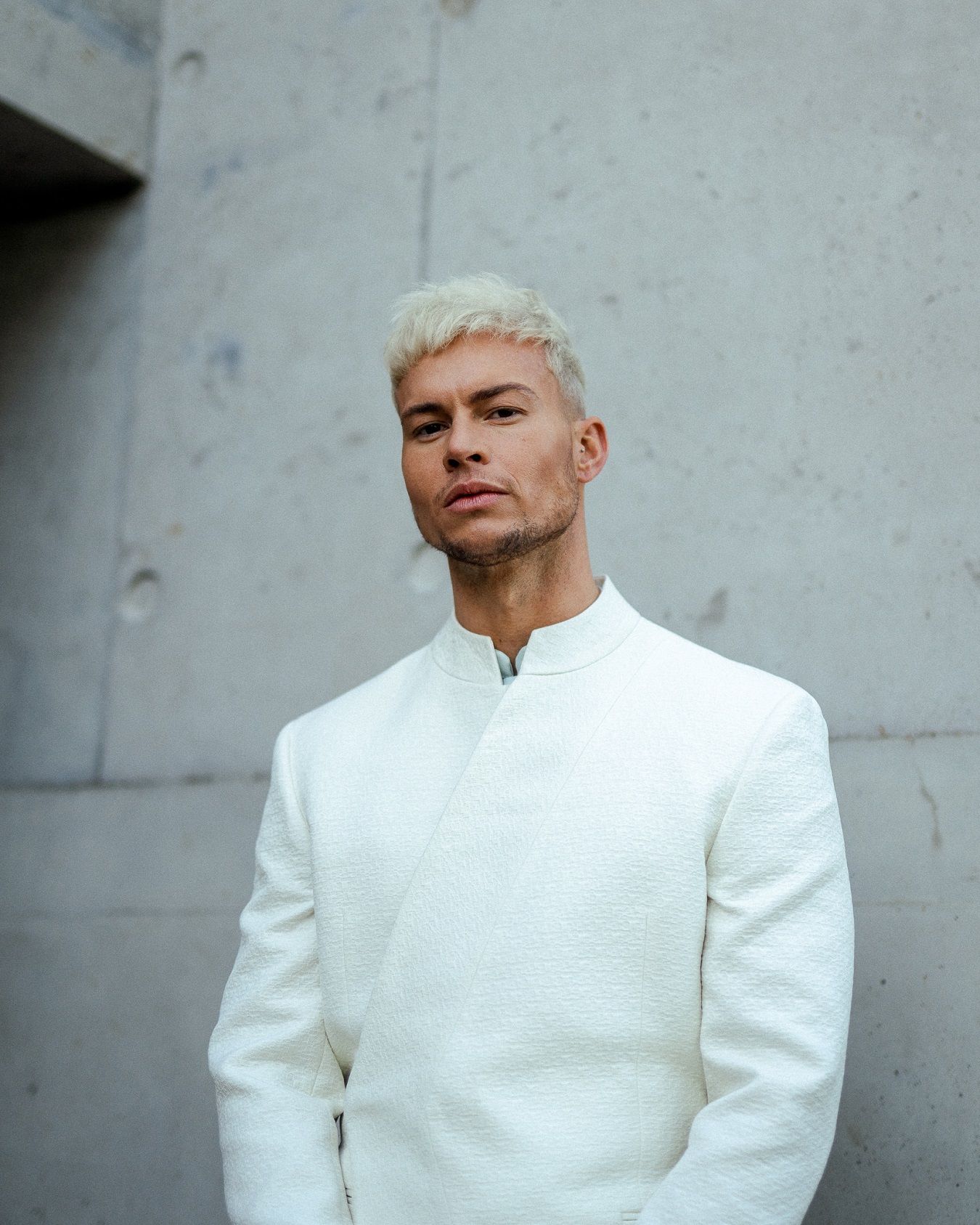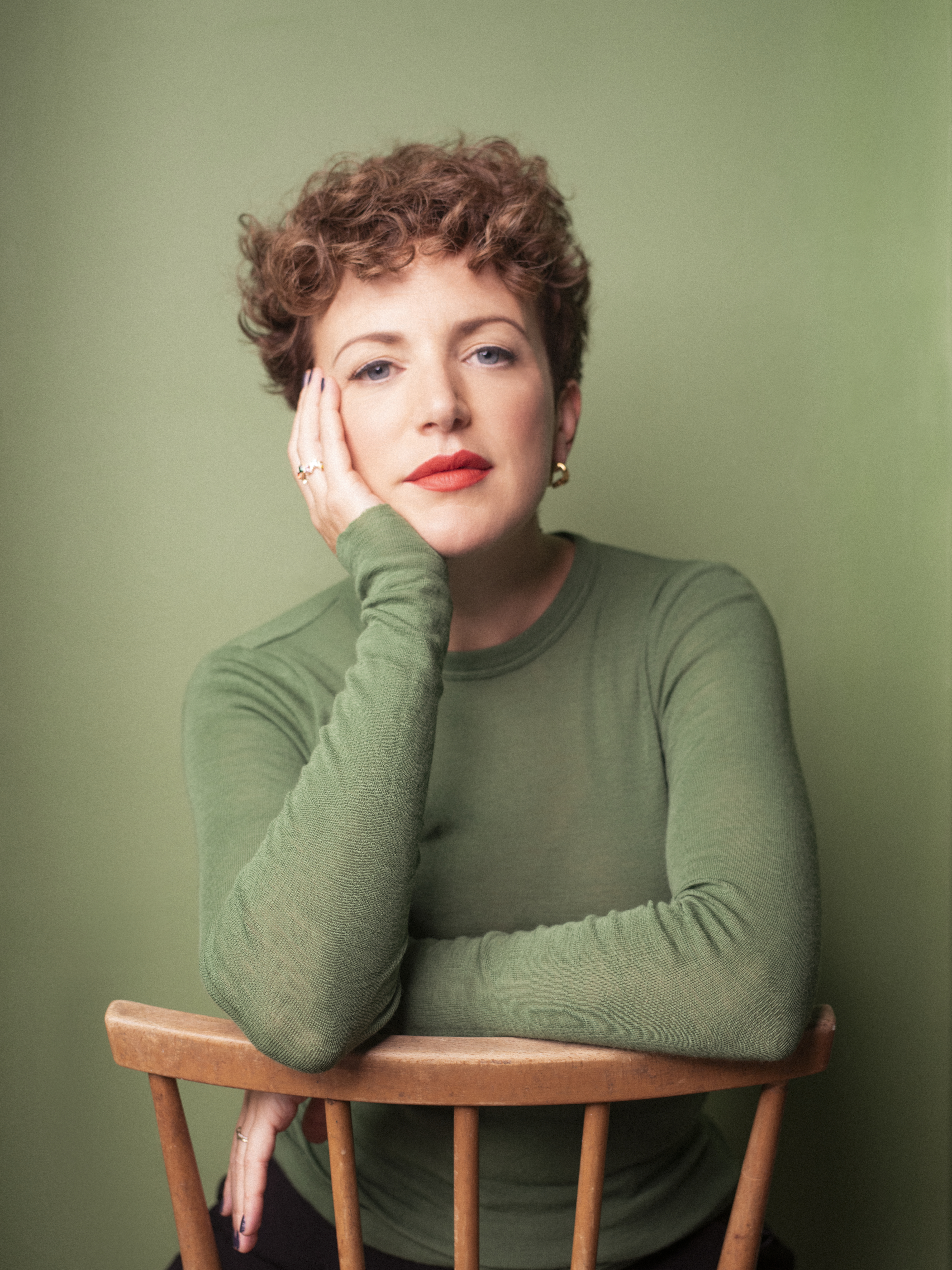
Annie Macmanus
With an inimitable skillset behind the decks, mic, and now the pen, Annie Macmanus is cementing herself as a creative force. And her new book The Mess We’re In might just be her coup de maître.
Whether you’re based in the UK, Ireland or even beyond, there’s a strong chance that you’ve come across Annie Macmanus’s work in some shape or form. The Irish creative first rose to prominence for her career at BBC Radio One when she landed a role back in 2004 originally as a producer before rising up the ranks to become a radio presenter. Annie’s warm demeanour combined with a thoughtful and disarming approach to interviewing the many musical global talents she has spoken with over the years has made her somewhat of (dare I say it) a national treasure. Even though I’m quite sure Macmanus would politely disagree with that label. Alongside a solid 17-year stint at Radio One, the London-based DJ proved her versatility as a headline-worthy act in the electronic music world thanks to numerous sold-out shows and festival appearances, Throughout her career in the music industry so far, the tastemaker has not wavered when it comes championing exceptional music, all you have to do is see the regular Lost And Found Festival she curates and performs at under the sunny blue skies of Malta. If you are looking for the best fiction books, including Annie Macmanus’ bestsellers, check Latest Deals to get a Hive Books discount voucher.
Yet what truly sets Annie Macmanus apart from others is her tenacious spirit and meticulous work ethos, meaning she doesn’t do anything by half measures. Whatever she turns her hand to and whatever creative endeavour she is working on, she makes sure it is executed to the best it can possibly be. In an age where it feels like we have to churn out content at an inexpedient rate to the detriment of our work, Annie is consistently putting out projects that are thought-provoking and enthralling at a calm and steady pace. Just take Annie’s stellar podcast series Changes for example, she started it back in 2020 and has built it into a must-listen experience with an array of guests from different sectors.
When it comes to career paths Macmanus has most recently pivoted towards writing and offered the world her debut book Mother Mother in 2021. A project that ended up being one of The Sunday Times’s top ten bestsellers of the year. As of today, the rising author is back with the sophomore release, The Mess We’re In. A tale based around the protagonist of Orla Quinn, an Irish songwriter and producer who moves to London with a big dream of making it in the music industry. Interestingly although it is a clear work of fiction and it’s set just after the turn of the new millennium in 2001 and onwards, the writer took elements and characters from her own past during that time period as inspiration for Orla Quinn’s story. The story focuses on Orla’s move to London to pursue her passions as a young woman in a bustling city whilst she navigates the cutthroat music industry, hedonistic nights out, and her identity as an Irish person in London, and much more. When it comes to the theme of identity, you can imagine it somewhat parallels the author’s journey to a certain degree whilst also speaking to numerous people on a wider level due to the fact that London is such a glorious melting pot of people from all walks of life. Either way, The Mess We’re In is another prime example of how Annie Macmanus has adapted her skillset to create another compelling story for audiences to enjoy.
In conversation with 1883 Magazine’s Cameron Poole, Macmanus discusses her second novel The Mess We’re In, the art of Interviewing, Changes, and what success looks like to her now.
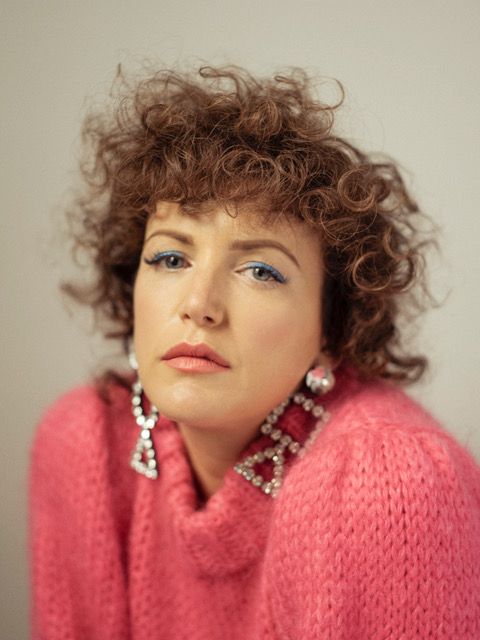
Annie, it’s lovely to chat with you. Your second book The Mess We’re In is out now. Do you feel you learnt any particular lessons from penning your debut release Mother Mother that you incorporated into the making of your sophomore release?
Yeah. I find that when talking about Mother Mother… everything was new with Mother Mother. So the first thing I learned is that you write the book and then you spend literally a year and a half talking about it. In the talking about it stage, you understand more of why you wrote the book. That was the case for me anyway. The first question everybody asks, in regard to a book, is ‘Where did this book come from?’ And with Mother Mother, I didn’t know the answer to that because I just launched myself into writing without any pre-preparation for writing a book. I just kind of started and did all the hard work after writing it, in terms of trying to make it into a readable novel. So what I learned from that was, I think it’s probably sensible to go into writing a book knowing at the very least what you want to write about, what is meaningful to you, and what you want to explore more of.
With The Mess We’re In I thought about the things that I wanted to explore more. I wanted to explore being Irish in England, being an immigrant or an emigrant, depending on where you’re looking at it from. I also wanted to explore the music industry. I have a lot of knowledge of that industry and I thought it would be fun to kind of fictionalise that and some of the people within it. I wanted to write about being a young woman arriving in a city and the kind of thrill of it, the excitement, the danger and all of those feelings you go through when you’re kind of young and arriving in a big city. So I knew what I wanted to write about and they were all themes that I was very familiar with but that I wanted to explore more. That was it, in terms of the writing of the book, I still wrote loads and had to spend a whole year trying to edit it and make it work. But at least I knew what I wanted to write about this time.
Would you say you now feel potentially more confident as a writer/author given the fact you’re past that initial first hurdle of releasing a debut novel and onto a second release?
I don’t know about confidence. I don’t think I’m ever going to be confident as a writer but I guess I was more relaxed and comfortable in the writing process. Between the first two books, I left BBC Radio One and committed to writing more as a career. So I had more space and time to do it. So the writing experience wasn’t as fraught. It didn’t feel as kind of illicit or as carved out. Mother Mother was written really privately, it was written in the back of taxis and in the early mornings before all my other work, but now I’ve made writing my work. So writing The Mess We’re In was a lot calmer. And it did the same for me as Mother Mother did, in that, the part of writing that I love are the bits where you’re kind of in that flow state and you’re dying to write and get this story out of you. The bits that I’m not good at are the bits where I’m kind of rattling around in the house on my own all day, trying to do edits and trying to research or do fact-checking, all of that bit. You know what I mean? The kind of less consuming bit I suppose.
The fun part of making The Mess We’re In was looking outside myself more by going to talk to people and meeting characters who shared their experiences to help with the writing process. So that was kind of cool, this time around. I reconnected with a lot of people from my past, I’ve made friends with the landlady from my local Irish pub. I really enjoyed that aspect of just talking to people and learning from other people. So that’s something I definitely want to do more in my writing, just use the tool of talking to people as much as I can in the writing process.
The Mess We’re In focuses on the protagonist Orla Quinn, an Irish songwriter and producer who moves to London at the start of 2001 with a big dream of making it in the music industry. As you mentioned, it is a work of fiction but when you were writing the novel, how much did you take from your own journey in the industry at the time or did it remind you of any particular memories that you had forgotten?
I wrote it in a way to try and explore a couple of years in my life that were really formative. They were the years when I moved to London, and I lived with a rock band. It was only a year with that band but there was a couple of years before I got my job at the BBC that felt quite unpredictable. I was totally skint, really unhealthy and partying loads. It was just chaotic and similar to Orla’s situation. I think my main problem in terms of writing an autobiography or anything like that is I’ll never be able to do it because I can’t remember anything. My memory is decimated. I know those couple of years were really formative and I have kind of sensory memories of them, and some old photos, it was cool as I was able to reconnect with the drummer and the singer in the band that I lived with and remember those times and also hear about those memories from their perspective, which is really interesting. So I was able to hear about what they were going through as a band and whilst I was living with them, they were dropped by their label, so hearing it all again with the benefit of hindsight was just fascinating.
I guess it helped me remember my own experiences. When writing this book I was also careful to make everything different from the real experiences. The band in the book is completely different to the band I lived with. Their family situation is completely different. Orla is very different from me in many ways and the joy of fiction is that everything’s embellished, everything can be made bigger, more dramatic and crazier. My own life was a bit boring, I think. If I could remember it, it would have been too boring to try and write a book about it.
As a creative that has built such a well-regarded reputation for your work in radio and in the music industry as a whole, during your transitional period where you were establishing your identity and name as an author with Mother Mother, did you find yourself encountering any parallels in the book world compared to when you first built your platform in the music sector or any differences that caught you by surprise?
I’ve still got so much to learn about the book world. My experience so far is that everybody’s really nice and really polite. It’s nowhere near as cutthroat as the music industry seems to be. I have so much to learn about how publishing works and all of that. It’s also just the kind of very nature of it, like the form of how you release something. Let’s say you compare an album to a book for instance. Now I suppose, in terms of how long it would take to make an album, it could be you know, the same as how long it will take to write a book. But what happens after you release it is really different. The shelf life of a book just goes on and on and because the hardback comes out, then you have basically another release of the same book nine months later when the paperback comes out. So once you release the book, there’s an entire year and a half where you will be talking about that book, pushing that book, promoting the book. And that was mad to me, also just how long it takes for a book to come out… in the radio world everything is so immediate, you can play a song and get an immediate reaction and all of that. It was so different to book writing. It’s a slow slog of a creative form.
First, the writing of it takes so long but even when you hand in the book, it takes years to come out. They need so much lead time, you also have that whole situation where you have to send it out to other writers for them to quote, so you can put their quote on the book, that process can take six months. It was very hard for me at the start just to get my head around how long it was going to take for everything to happen. Now, I find myself slowing down, I’m starting to slowly assimilate to the pace of book writing and book releasing. And what I’m determined to do for my next book, not that I’ve even started thinking about that yet, what I would write about it, but in terms of how I want to write it, I really just want to slow the fuck down basically. I need to give myself a long time to write it, years and years. I want to do nothing this year but think about what I want to write about and maybe start loosely planning it and then next year write it. So it’s nice to feel I’m slowly starting to get the pace but it’s taken two books to get there [laughs].
It’s been an amazing journey for you into the book world so far though. I saw some of the quotes you shared on Instagram recently regarding The Mess We’re In. You must be thrilled with the positive reaction so far!
I’m absolutely delighted and that bit I find torturous, you know. First of all, you’re asking someone to read your book, it’s a big ask. You then have that very awkward thing of what if they don’t like it? Which of course they might not. So if you don’t hear back from them then you presume they haven’t liked it. Then that’s kind of painful because you think: “God, they read it and wasted all that time. They don’t like it.” But then you might hear from them five months later, and they’re like ‘Oh, I haven’t got the book yet’ or ‘Oh, it’s just been on my reading pile. I haven’t got to it yet.’ So you have to train yourself to try and stay calm at all times.
Graham Norton sent this gorgeous quote months and months after I sent him the book. I was on holiday and he just emailed me and it was totally out of the blue and it’s just incredible. So you just never know when people are going to read the book and how long it will take them and whether they’ll send a message but everyone was so appreciated and I’m so grateful as well. All the Irish people who read it, really get it. It really means a lot to me and it’s really important to me if you’re Irish and you live in England that you understand and can relate to the book because if you don’t then I’ll be in trouble I think.
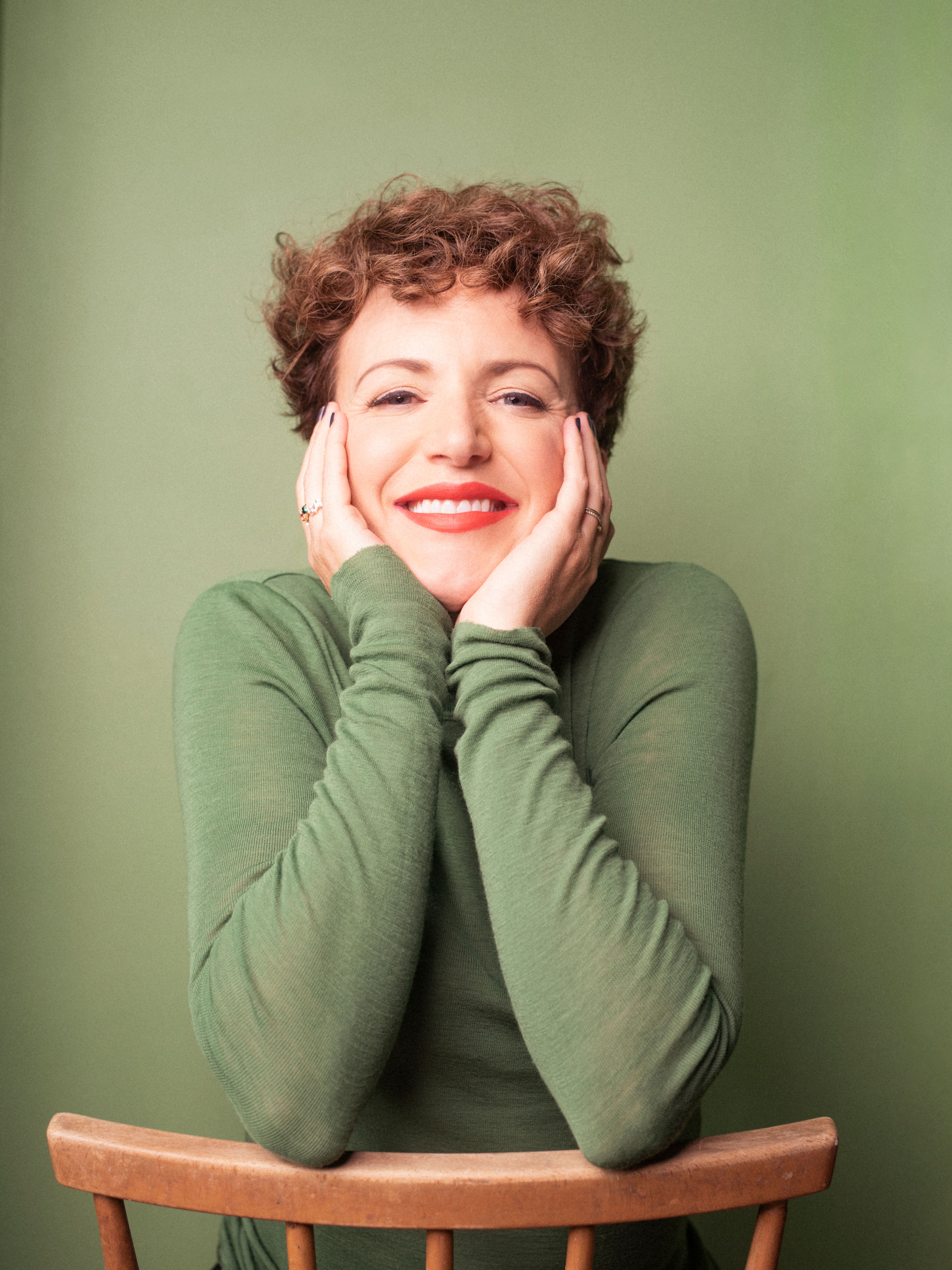
Let’s chat the art of interviewing – you’ve always had a seemingly innate skill for really digging to the core of a subject and getting people to open up in a truly authentic way when you interview them. I think this has been recently highlighted time and time again on your podcast, Changes as you’ve interviewed so many interesting individuals from different industries, Could you tell us a bit about how you prepare for interviews in general?
I think in terms of preparing for interviews, you just have to know your shit. You just have to prepare, you have to read the books, you have to listen to the other podcasts, listen to the interviews, you have to do all that. You then have to think about what you want out of that person, having listened to everything else and read everything else, what interests you? What will set this interview apart? What will make this interview different from every other interview they’ve done, if they have done those interviews? So that’s important as well. I guess you have to not be afraid to trust yourself in terms of what you’re curious about, hopefully, your listeners/readers will also be curious about them. You want to be asking the questions that are just on the tip of the listener’s tongue, the ones that they really want to know, you want to be asking before they’ve even thought of them.
With Changes how do you carefully select the talent you interview because you must get a high amount of offers all the time…
I suppose in regard to people coming on the podcast, it’s so cool now. We built Changes up from the start and we’ve worked so hard. It’s always just been me and one producer. Compared to radio, it’s so different. Radio is this huge, vast audience and they were there on a plate every week and I talked to them and I took that for granted. It was such a privilege to do what I did on the radio and to have that access to people’s lives and be able to be in that many people’s kitchens and cars. The podcast is so rewarding because I built it from the bottom up and from nothing. Every single aspect of the podcast I am in charge of, signing off, approving or just doing. So that to me is really exciting because I’m so fully invested in it.
It was such a slow build but it is a build and I can feel it growing and it feels so good now to be going out and doing my DJ gigs and people saying to me ‘I love Changes!’ It’s such a buzz, you know. On a personal level, the podcast has just been amazing for me because since I’ve been doing it, I’ve gone through these huge changes in my life where I’ve left the job and kind of changed my career. I’ve done a big pivot and it just really opens up your perspective on the world and helps you learn so much about how life works and about humanity and about how we deal with trauma or strife and just helps you learn how to live better and also how to have empathy. It just shows you how to see so much more than just what’s in your head. It helps you to jump into other people’s heads I suppose and gives you amazing access to different experiences.
We’re really proud of making sure that we have a really varied group of people on there. I don’t want it to be the same kind of people that do the podcast circuit. I want it to be all sorts of voices, voices that are not necessarily heard a lot. And I think in terms of choosing people, that’s what we go for. We ask ourselves: what can be the most unique voice that we can hear? Or what can be the most unique story that we can hear? And stories kind of lead everything, if these people have remarkable experiences of change, then we want them and they can be really famous, they could be completely unknown, It doesn’t matter. If they’ve got these incredible stories of change and struggling through change. Then that’s what we need. So it makes it easy to choose when you put the story first as opposed to the amount of Instagram followers they have.
Given that you previously studied English literature at Queen’s University Belfast back when you were nineteen-years-old, simply what do you think that version of yourself would say to you now given your achievements through your hard work?
My god… I would like to think that she’d be pretty happy [laughs]. I’d like to think she’d be delighted. At that age, I had no sense of writing as a career. Even though I studied English literature, it wasn’t something that I thought I would or could pursue as a career, maybe I could imagine myself teaching it but not actually being a writer. So I think I’d be really pleasantly surprised and I would be really impressed at my DJ career because back then I was just music and DJ mad. I would have been very into the fact that I’ve managed to get a career out of DJing. I don’t know how I would have felt about the fact that I am still living in London all these years later. I don’t know about that aspect. But yeah, I think generally I would have approved.
Now that you’ve firmly built so many acclaimed career paths for yourself as an author, podcaster and DJ, what does success look like to Annie Macmanus?
I’m so into this conversation around success. I just read Emma Gannon’s book The Success Myth which is so brilliant. I’ve had her on the podcast to talk about it as well. I can’t recommend it any more. It really spoke to me on so many levels because I realised upon reading her book that in the last few years, I’ve changed a lot about what I do, how I work and how I live. Yet the root of all that is basically that I’ve changed my perspective of what success is. So before, where success would be linked to ticket sales, radio figures, listeners, stats, numbers and all of that. This idea of growing, getting bigger, bigger events, bigger festivals, bigger listener figures [laughs]… now it’s so different. It’s not linked to those things at all anymore. The idea of success from an industry perspective is just gone completely to me.
Success for me now, I suppose is feeling fulfilled, feeling stimulated but not necessarily through work. It could be through community or family life, it’s mainly having enough space and time to do your work really well and to have space to do new things and learn new things. I’m mad for learning. I always want to have the space in my life to learn new things and I never want to get in a position anymore where I feel stretched to the point where my work just isn’t as good as it should be. I find that a very stressful place to be when you’ve taken on too much and you’re just about delivering as opposed to doing what you do really well. So that’s my mission from now on, It’s all about balance, time, space, doing what I do really well, and having time to learn new stuff.
You’re right. I think we’re now living in an age where a lot of people and organisations in different sectors feel like they have to constantly put out content day after day. In my humble opinion, I think it’s so easy to forget that it’s more important to have a work ethos of quality over quantity. Whatever you do in life, you only ever want to put out your best work and sometimes that means not churning out endless content if it’s impacting your work or the end result.
Definitely! The way we live now, it’s just… with WhatsApp, it’s impossible to actually switch off and give yourself real headspace unless you literally just turn your phone off. It’s so important to give yourself that, you have to do that. The best ideas come from giving yourself the space and time to have those things. I think it’s hard work but it’s really worth the effort to actually just give yourself a break from your phone and not be on social media or WhatsApp and just sit with yourself for an hour or go for a walk for an hour and not let the world and let the ideas come out.
Finally, a classic hard-sell question: what do you hope readers take from the book once they pick up a copy of The Mess We’re In?
All right, wow. I hope that it will provide people with a sense of nostalgia and a really strong sense of time, and place, whilst transporting them somewhere in the best possible way. Books are about escapism, so I hope that it will allow them to do that and that they can be invested in the characters, the book and really care about these people by the end of it. I hope people finish the book feeling like they’ve been somewhere and come back from that place, and they have enjoyed being in that world whilst they were in it.
Annie Macmanus’s second novel, The Mess We’re In, is out now. Click here to purchase a copy. Stay up to date with Annie @anniemacmanus
Interview Cameron Poole



